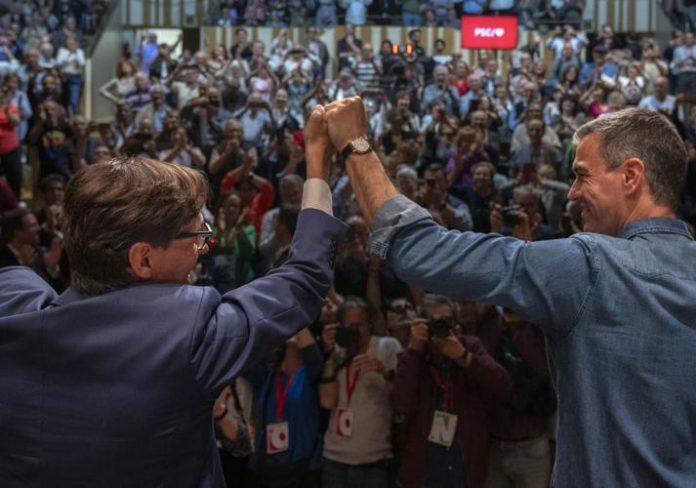Regional elections are taking place in Catalonia, with the results having the potential to influence Spain’s national politics.
The vote will test both the strength of the separatist movement in Spain’s wealthy northeast and the policies of Prime Minister Pedro Sánchez. Over 5.7 million voters are eligible to elect lawmakers to the regional parliament based in Barcelona. Polls show the Catalan Socialist Party (PSC) will take the top spot with nearly 30 per cent of the vote.
Separatists have held the regional government for more than a decade. But opinion polls and national elections in July show that support for secession has fallen slightly since former regional president Carles Puigdemont led an illegal and futile secession attempt in 2017.
Puigdemont has been hiding from Spanish law since he fled the country days after the failed secession attempt. He is campaigning in the south of France and says he will return to Spain when newly elected lawmakers meet to choose a regional president at some point after the election. He hopes to be rid of any legal problems by then after Spain’s parliament finally approved an amnesty for him and hundreds of other separatists. The amnesty is part of Sánchez’s intensive efforts to reduce tensions in Catalonia, which also included pardons for jailed senior separatists.
If Catalans do not back the Socialist Party, it would be a blow to the leader, who heads a minority coalition in Madrid.
According to polls, Puigdemont is in second place. While he is set to benefit from Spain’s controversial amnesty bill, the law has yet to be passed and he faces serious charges in Spain for his role in the 2017 independence struggle. The election will be characterised by a struggle within the separatist camp between Puigdemont’s conservative Together party and Aragonès’s Republican Left of Catalonia.
Nine parties are contesting the election and none of them is expected to come close to securing enough votes to win an absolute majority of 68 seats in the chamber. Catalan parties have not signed any agreements, so it is difficult to predict what the government might look like in the coming weeks, even knowing the results.
